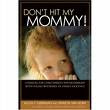Extraordinarily high rates of homicide and sexual violence have been recorded in Mexico -- principally in the border town of Ciudad Juarez -- and Guatemala City since 1993. Between 2001 and 2006, nearly 1,500 women were murdered in Guatemala City. Many victims show signs of torture and sexual abuse, which is reminiscent of tactics used during Guatemala's 36 year internal conflict. The mortality rate of Guatemalan women today is nearing that of the early 1980s during the peak of violence during the U.S. - supported "Scorched Earth Campaign."
An analysis by the Network in Solidarity with the People of Guatemala describes how the neologism "feminicide" is distinct from its root "femicide" because it is a political term that not only describes the crime but also implicates the State's failure to respond.
Victoria Sanford writes, "Feminicide is a political term. Conceptually, it encompasses more than femicide because it holds responsible not only the male perpetrators, but also the State and judicial structures that normalize misogyny. Feminicide connotes not only the murder of women by men because they are women, but also indicates government responsibility for these murders, whether through the commission of the actual killing, tolerance of the perpetrators' acts of violence, or omission of State responsibility to ensure the safety of its female citizens. In
Sanford's analysis of feminicide in Guatemala is consistent with analyses of feminicide in Ciudad Juarez. An additional dimension noted in writings about feminicide in Ciudad Juarez is that the rash of murders began at approximately the same time that NAFTA went into effect in 1994. Changing employment opportunities that resulted from NAFTA's implementation led to increased rates of migration from southern and rural Mexico to the northern border town that is home to many maquiladoras, which employ mostly women. These articles suggest that changing family structures may have increased levels of domestic violence in families where women were employed but men were not. Julia Estela Monarrez says that murders in Ciudad Juarez are "politically motivated sexual violence" rooted in a system of patriarchy and that reveal a normalization of violence as an expression of social control.
Obstacles to justice in both Ciudad Juarez and Guatemala City are impunity and immature judicial systems that fail to prioritize investigations of these violations of women's human rights. During the mid-1990s, the people of Ciudad Juarez were still searching for a serial killer but eventually all recognized the killings as a systematic phenomenon within a society plagued by corruption and a multitude of other types of violence, including poverty.
links below have more information:
http://www.nisgua.org/themes_campaigns/index.asp?id=3056
http://lists.econ.utah.edu/pipermail/margins-to-centre/2007-July/001415.html











No comments:
Post a Comment